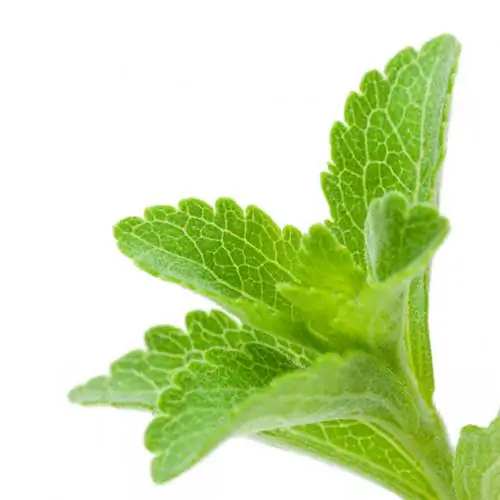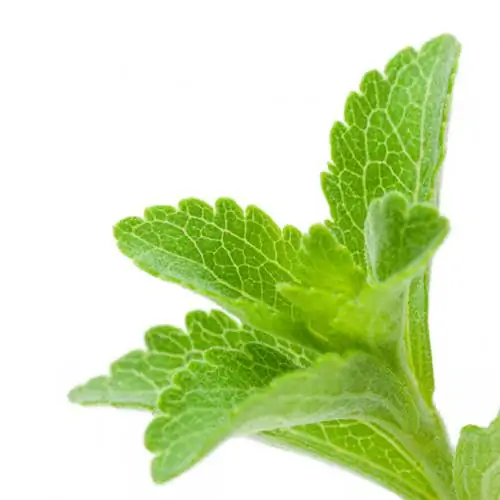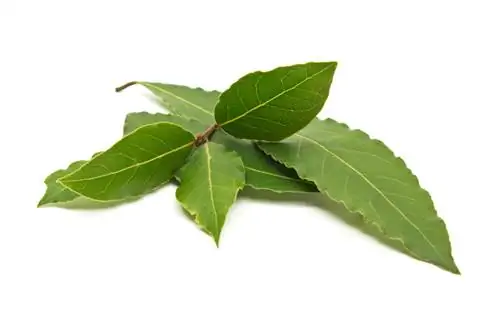- Author admin leonars@hobbygardeners.com.
- Public 2023-12-16 16:46.
- Last modified 2025-01-23 11:20.
The leaves of the stevia plant contain sweet-tasting steviosides, which, unlike sugar, contain no calories. They are also reputed to protect teeth from tooth decay, regulate blood sugar levels and lower blood pressure. However, critics warn against the natural sweetener as it may not be as harmless as many claim.

Is stevia harmful or harmless?
Is stevia harmful? Stevia is safe to consume in moderate amounts. The European Food Safety Authority recommends a maximum consumption of 4 milligrams per kilogram of body weight. If you do not exceed this amount, there are no known he alth risks.
Stevia from the supermarket - often not as natural as promised
In South America, the original home of the stevia plant, the leaves of the sweet herb have been used since time immemorial to sweeten mate tea and as a gentle remedy. The stevioside contained in the plant is responsible for its sweetness, although it has a slightly different aroma than conventional table sugar. It tastes very sweet, slightly bitter with a slight licorice aroma. This changed taste is the reason why so far only a very limited amount of foods sweetened with stevia can be found on supermarket shelves.
Stevia available commercially is very different from the sweet herb that you harvest in your home garden and add to your tea. These powders or sweetener tablets are isolated stevioside, which is separated from the other plant substances using solvents and modern laboratory technology. Since stevia tastes extremely sweet, it is difficult to dose. That's why fillers such as m altodextrin are added to the sweeteners, which increase the volume and thereby make them easier to use in the kitchen.
Is stevia he althy or harmful?
In the EU, Stevia can currently only be used in limited quantities and in certain foods. Stevioside must also be declared as additive E960 on the packaging. The European Food Safety Authority considers an ADI value (Acceptle Daily Intake) of four milligrams per kilogram of body weight to be harmless. Its recommendation follows a WHO report from 2008. If you do not exceed this recommended consumption amount, you do not have to worry about any he alth risks based on current knowledge.
If you want to reduce your weight, Stevia is a good alternative to other sweeteners. Unlike consuming sugar, consuming stevia does not increase blood sugar levels, making weight loss easier. In addition to obesity, the high sugar consumption in industrialized countries leads to other secondary diseases such as high blood pressure and tooth decay. You can also reduce these risks if you replace some of the sugar you consume with stevia.
Stevia from the garden
If you consume very large amounts of isolated stevioside, however, you can quickly exceed the recommended consumption amounts. However, with self-harvested stevia leaves, this risk is significantly lower than with industrially produced stevia sweetener. However, experts recommend that diabetics, calorie-conscious people and children pay attention to the amounts of stevioside they actually consume. As in many cases, the dose of stevia ultimately determines whether something is he althy or harmful.
Tips & Tricks
To sweeten food and drinks, prefer using stevia that you have grown yourself. Do not replace conventional table sugar with sweet cabbage in all dishes. So you can be sure to enjoy without regret and not to exceed the recommended maximum consumption levels.






